- Home
- Helen Dunmore
Betrayal Page 2
Betrayal Read online
Page 2
Tanya and her mother both laugh. It’s an old joke between them. Tanya’s mother used to scuttle in and out of the hospital, head down, terrified of breaking imaginary rules, terrified that Tanya would show her up. On one occasion all her fears came true when Tanya couldn’t get to the toilet in time and wet herself, right there on the floor. But they’ve all got to know one another now. Just as well, since Tanya has had to be hospitalized several times with acute attacks. There is a new treatment based on extracts from animal adrenal glands, but he thinks it is still too risky for Tanya, given her weight and generally poor condition.
‘You remember how I told you, Tanya, that your joint mobility depends on you too now, not just on the doctors and nurses? How have those exercises been going?’
Andrei has prescribed a course of isometric and isotonic exercise for Tanya, plus massages.
‘Very well, doctor, she’s been doing her exercises every morning and every evening, just like you said,’ Tanya’s mother answers.
‘Even when they hurt I do them,’ says Tanya proudly.
‘That’s right. Remember what I told you, it may hurt but it will never harm you. You’re not putting any weight on your knees, you see. You’re just helping them to learn how to move again. And how about the cod liver oil?’
‘She takes it every day, good as gold, don’t you, Tanya?’
What he’d really like to do is send Tanya to a sanatorium that specializes in arthritis. There’s no father: dead in the war, like so many of his children’s fathers. Probably never even saw his daughter. The mother is from Kingisepp originally, but she and all her family fled east as the Germans advanced, and were sent on to the Urals. Tanya and her mother must have returned as part of Leningrad’s post-war influx. And now Tanya’s seven, and her mother works in a tailoring shop. Their chance of a ticket to a children’s sanatorium looks slim, but it’s still worth pursuing.
‘And you’ve kept all the physiotherapy appointments?’
Tanya’s mother can manage these hospital visits, but each physiotherapy session means that her own mother, who went back to live in Kingisepp, must travel to Leningrad, stay over and take Tanya to the clinic. ‘She’d live with me if it would help, but in a communal apartment like ours it’s not really possible. Our room is very small. And besides, she grows vegetables, and that’s how I get extra eggs and milk for Tanya.’
‘Yes, Tanya’s been to her appointments as regular as clockwork,’ says her mother with pride. ‘She’s never missed a single one.’
‘That’s really excellent,’ says Andrei warmly. ‘Now, please wait just a moment while I have a quick word with the radiographer. Tanya, I’m going to ask Sofya Vasilievna to look especially carefully today.’
He spends too long with patients. He talks to them too much. He’s been criticized for it, but he points out in his defence that in the long term his approach is efficient. It enables him to spot problems as they develop, or even before. He achieves ‘exceptionally high levels of patient compliance with treatment’, which is certainly something that can be ticked off on the targets. It’s not all ‘yes doctor no doctor’ and then go home and swallow some decoction their grandmas swear by, and not bother with the exercises because the poor little thing is sick, isn’t she, so what’s the good of wearing her out?
Also, Andrei believes that children want to know far more than we think they do. They get less frightened that way. He has known children close to death who have understood it in a strangely matter-of-fact way, but have suffered because their parents, in grief and terror, refused to acknowledge what was happening.
He’s on his way up to the ward when someone behind him calls his name. He turns. ‘Lena! Sorry, I’m in a rush –’
She’s panting, and her face is flushed. She must have run after him. ‘I saw you coming out of Radiology.’
‘Is everything all right?’
‘I’ve got to talk to you. It’s important. It’ll only take a minute.’
‘What’s wrong?’
She glances up and down the corridor, puts a hand on his arm and steers him a few metres away from the half-open door to their left.
‘You were in the courtyard with Russov.’
‘Yes?’
‘It’s about the boy who came in last night, isn’t it? He’s in a private room, but Lyuba saw the name. What’s going on? Don’t for God’s sake let Russov drag you into this.’
‘Lena, is it true that this is Volkov’s boy?’
Again that quick look up and down the corridor. ‘Yes. They say it’s the only child.’
Andrei feels a plunge in his stomach, as if he were standing on a cliff and had suddenly looked down.
‘He was, wasn’t he?’ asks Lena.
‘What?’
‘Russov. Trying to dump the case on you. It’s so typical –’
‘I suppose we can’t blame him, Lena. If we were in his shoes –’
‘You soon will be, if he has his way. And he’ll be out of them.’ Lena’s clever, slanting green eyes scan his face anxiously. ‘You’ve never agreed?’
‘I’ve said I’ll talk to him tomorrow.’
‘Listen to me. I know about these things. Tomorrow you’ll call in sick. Promise me.’
‘I can’t do that.’
‘Do you think Russov would do anything for you if you were in his position?’
‘No. Probably not.’
‘Well, then.’
‘But, Lena, we’re medics; we have to cooperate. It’s perfectly legitimate for Russov to call on a second opinion.’
‘Is that what he calls it? He’s going to be the first opinion, then?’
‘Well –’
‘Just as I thought. It’ll be you in the firing line, and no one else.’ She lowers her voice again. ‘You should keep out of it. Remember Court of Honour.’
Of course he had seen the film. He and Anna had watched it in silence, and left the cinema without comment. She had held his arm very tightly on the walk home. The film was fiction, but its targets were real.
Kliueva, Roskin and Vasili Parin. Brilliant, innovative research scientists. Kliueva and Roskin pioneered biological drug treatments to shrink tumours. They’d seemed invulnerable. State funds poured into their research institute. Kliueva was awarded a Stalin Prize.
The charges brought against them were that they’d betrayed Soviet scientific research secrets, which belonged to the State. Either they’d been tricked by the Americans into disclosure, or there was a more sinister explanation. But everyone knew it was inconceivable that they’d made these contacts with the Americans without permission. No scientist travelled to the USA without a full and thoroughly understood set of instructions. Whispers said that everything was done on clear State orders. Policy had changed overnight, as it did so often, and the scientists paid the price. Parin, who’d actually handed over the research material, was sentenced to twenty-five years as a spy for the Americans. Somehow, by the skin of their teeth, Roskin and Kliueva survived their Court of Honour, their severe reprimand and the barrage of claims that they too were spies, hoodwinked by the Americans.
They’d been unbelievably lucky; Parin not so. The warning was there. Don’t think, however eminent and crowned with prizes you may be, that you can’t be destroyed. Don’t think that the scientific or medical community can expect any special favours because of its particular expertise. The same stringent standards apply to everyone. Scientists can be spies; doctors can be anti-patriotic saboteurs. Anybody can go out of favour in the blink of an eye. The State is tireless in exercising the utmost vigilance over scientists and doctors who present themselves as ‘do-gooders’, thinking only of the needs of humanity and of their patients.
Lena is watching him. She’ll know exactly what he’s thinking. Everyone saw Court of Honour. She glances around her again, and says very quietly, ‘I know it’s not quite the same thing, but it’ll turn out the same way, believe me. They believed that they were acting in good faith and so they would be all
right. All they were thinking about was the cure. That was their mistake.’
He nods. Not for the first time, he’s amazed by Lena’s trust in him. ‘I understand what you’re saying, Lena,’ he answers.
‘Do you? I hope so. You’ve got too much faith in people, but to me all this smells wrong. Did he tell you what’s wrong with the boy?’
‘Not yet. What do you know, Lena?’
‘Not a lot. No one’s been allowed near him except Russov. He’s had X-rays done already, did he tell you that?’
A wave of anger courses through Andrei. How can that be possible? To have X-rays done, but not to tell him! Was Andrei supposed to order more X-rays and so give the patient a double dose of radiation?
‘Retinskaya did the X-rays out of hours,’ says Lena, naming a radiographer who is new to the department and whom Andrei scarcely knows. ‘She’s like that with Russov.’
‘Lena, how do you know all these things?’
‘Because I’ve got kids. There’s only me to look after them, and so I have to know things. Listen, we’ve been talking too long. Promise me you won’t go in for any heroics. A man like Volkov, you don’t want him even to know your name. You just have to not be here, that’s all it’ll take. Call in sick tomorrow.’
The children. Yes, Lena has two children. And no husband, like so many. Andrei never knew him, because Lena’s not a Leningrader. She’s a Muscovite who moved here after the war. Her husband was a prisoner of war and he died in a German camp. He left behind a girl who must be fourteen now, tall, with long plaits, and a boy a year or so younger. Both of them are much fairer than Lena, and the girl is as slender as a willow, quite different from her dark, stocky mother. The dead man moves inside them like a shadow, in the turn of a head or the gesture of a hand.
Anna has always liked Lena. Kolya likes the girl, too: Vava.
Call in sick! If only he could. Anna could call in sick too – a double miracle – and they’d take their bikes and some bread and sausage and cycle out to the dacha for the day. Kolya would be at school, so it would be a real holiday, just the two of them. He’d repair the shutters, and Anna would dig the vegetable garden and then make tea.
But Russov must be crazy to take such a risk with the X-rays. It’s inconceivable that he’s simply destroyed them. There must be a record.
Crazy, or very, very frightened. What can those X-rays have shown?
If it’s some form of juvenile arthritic disease, then it’s legitimate – or at least, semi-legitimate – to shunt the case on to Andrei. Everyone in the hospital knows he runs two JA clinics a week. But X-rays reveal many things –
He fights down an urge to find Russov and shake him until he disgorges every bit of information he’s got. Let’s see if he dares to lie about those X-rays when Andrei’s hands are around his throat!
Russov would still lie. What’s he got to lose by it? And the radiographer, what’s her name, she’ll lie too. They’ll have calculated that the worst that could happen is that the child might remember being X-rayed; but no one takes much notice of what children say.
Another wave passes through him, but this time it’s revulsion rather than anger. The child, in the middle of all this, not suspecting a thing. He’s been told what doctors are for: doctors are there to make you better. What have we come to, thinks Andrei, when our patients can make us ashamed of ourselves.
Call in sick … An attack of flu, even though it’s midsummer. He can smell the earth as Anna pulls weeds from between her rows of carrots. The soil will be moist after all this rain. The weeds will come out easily, and Anna will throw them on to a heap to wilt and die.
He blinks. The blob of sun on the corridor wall wavers. The day shines before him, impossibly ordinary and beautiful. This must be how the dead think of life. All those things they used to take for granted, and can never have again.
He is no brilliant Roskin. He’s never likely to be offered trips to America, or the chance to be bamboozled by American spies posing as disinterested fellow researchers who care for nothing but the good of humanity. He’s just an ordinary doctor; a good one, it would be false modesty not to recognize that, but still – just a doctor.
That’s all he wants; no more, but no less. He wants to live out an ordinary, valuable life. He wants Anna, and their life together, and Kolya too, maddening as Kolya so often is. He wants to come into work early and smile as he passes a colleague in the corridor, with her arms full of files.
‘Busy day?’
‘Yes, isn’t it always?’
He wants to sit in his vest by the wide-open window on the first warm day of spring, drinking a beer, with Anna somewhere in the room behind him, sorting the little brown envelopes of seeds she’s saved from last summer. Each envelope is labelled in her beautiful slanted handwriting. She has what he always thinks of as ‘an artist’s hand’. His own writing is cramped and hard to read. But they’ve never needed to send each other letters, because they’ve always been together.
That child in his private room doesn’t know it and can’t help it, but he carries a disease that destroys ordinary life as fast as the plague corrupts a living body. His father is high up in the Ministry for State Security, and he has one of those names that is spoken only in whispers: Volkov.
2
‘That’s right, heels against the wall, and now stand up as straight as you can.’
Anna is kneeling so that her eyes are level with little Vasya’s. He stands proudly, chin up.
‘Not on tiptoe, Vasya. You see, if you stand on tiptoe now and next time you forget, I’ll think you’ve shrunk and I’ll get worried.’
Vasya looks at her sternly, as if to say: This is no time for jokes!
‘All done. Do you want to look at your graph?’
Anna is responsible for keeping the children’s height and weight charts. Three years ago she gained a qualification in child nutrition, after two years’ study at night school. Now she has special responsibility for monitoring the children’s diet and preparing information sheets on nutrition, which are put up on the walls for the nursery parents.
‘You see that curve, Vasya? That’s where you started, there, when they measured you right after you were born.’
‘When I was a baby.’
‘Yes, when you were a baby. And they measured your head, too: look, that’s a separate chart. These are all the measurements we got from the clinic. This is where you are now … And look, this is how tall we think you will be, when you’re a man, if you keep on following the curve.’
She shows him the place on the wall measure. Vasya gazes upwards, his eyes wide.
‘One hundred and seventy-six centimetres. That’s a good height for a man. Now, go and put your shoes on and find the others. It’s home time.’
When Vasya has gone, Anna sits back on her heels, and sighs. It’s been a long day, and her back aches. She stretches her arms up high above her head, keeping balance. Just a short break, then she’ll get back to the figures.
Dimly she hears the hubbub of the children leaving. She’s being covered for home time today. Alla is helping arms into sleeves, crossing thick scarves over chests, cramming thumbs into mitten holes. The children are so tired and fractious by the end of the day, and their mothers are so tired too, after long days at work. It’s important to manage things so that everyone stays calm. There seems to be more noise than usual – someone’s crying …
At last all the noise fades away. The scratching of her pen is loud. Surely that head measurement can’t be right – or only if a child had hydrocephalus –
Just then Irina pokes her head around the door. ‘You finished in here, Anna? I’m off in a minute.’
Anna stands up. ‘I’ve got a few last measurements to put on the chart, and then I thought I’d stay on a bit to work out the averages.’
‘ “Averages”? That’s ridiculous. Isn’t it enough to keep a record of each child?’
‘Apparently not.’
‘Well, if you will keep
on “showing a special interest” …’
They both laugh. This is a favourite phrase of the nursery head, Larissa Nikolayevna Morozova. She is a tiny woman who barely comes up to Anna’s shoulder, but is packed with dynamic force. She has a way of making all her staff do far more work than they ever intended, by divining a ‘special interest’ in everyone. Irina’s is hygiene. Anna’s is nutrition, and Larissa Nikolayevna has every intention of sending her on further courses. ‘You’re an intelligent woman,’ she says to Anna, as if this is something Anna’s unlikely to have spotted for herself. Larissa Nikolayevna wants her to create a subset within her statistics, to track the growth of children born to blokadnitsa mothers. What are the effects, if any, of maternal starvation? Such statistics would be an invaluable basis for future research. In addition there’s a ready-made control group, because so many of the nursery mothers were post-war immigrants to Leningrad.
‘So how’s the hand-washing campaign going, Irinochka?’
Irina sighs.
‘Germs on your fingers, germs on your palms,
Germs on your wrists and germ on your thumbs.
When you come here to the sink you must fly,
And kill those germs before they multi-PLY!
Wash those germs away!
Wash those germs A-WA-AA-AAAY!’
‘My God, did you make that up?’
‘I’m afraid so. The kids love singing it, though. Apparently the incidence of colds and flu can be reduced by up to thirty per cent if children wash their hands each time they come indoors after using public transport. We’re touching germs all the time – the whole world is contaminated, Anna. And the rule applies to adults too, of course. Imagine the number of working days that are being lost quite unnecessarily. Children can become their parents’ educators!’
‘Each time? But the soap’s so harsh. Won’t their hands get chapped?’
‘Don’t. Just don’t. I’ve still got to write the hand-washing hygiene fact sheet for the parents not to read. All the same, it’s got to be pinned up and then taken down after a decent interval. And by that time the next campaign will be starting.’

 The Ingo Chronicles: Stormswept
The Ingo Chronicles: Stormswept The Deep
The Deep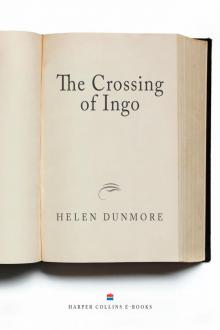 The Crossing of Ingo
The Crossing of Ingo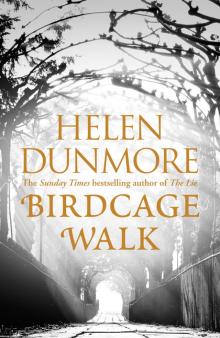 Birdcage Walk
Birdcage Walk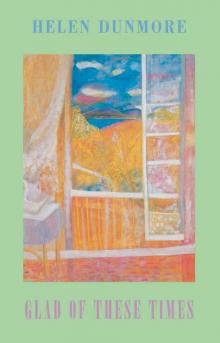 Glad of These Times
Glad of These Times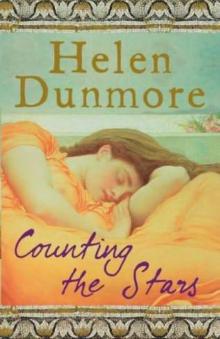 Counting the Stars
Counting the Stars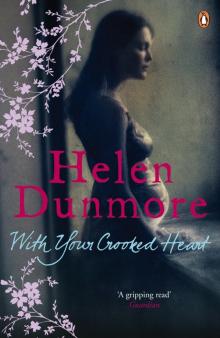 With Your Crooked Heart
With Your Crooked Heart Burning Bright
Burning Bright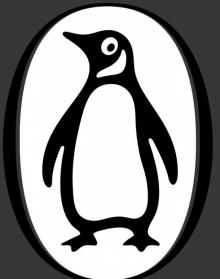 House of Orphans
House of Orphans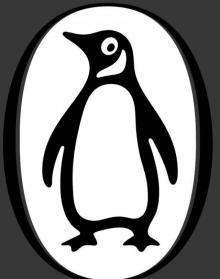 Mourning Ruby
Mourning Ruby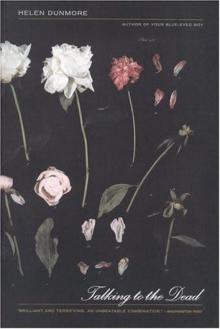 Talking to the Dead
Talking to the Dead Exposure
Exposure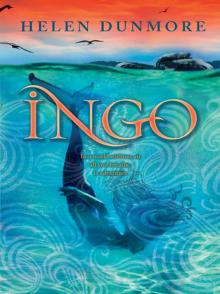 Ingo
Ingo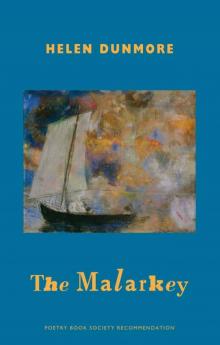 The Malarkey
The Malarkey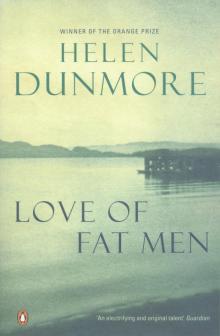 Love of Fat Men
Love of Fat Men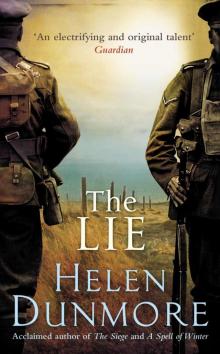 The Lie
The Lie The Siege
The Siege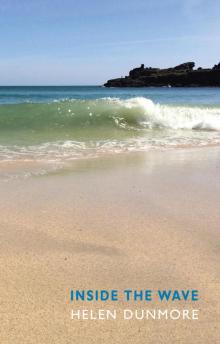 Inside the Wave
Inside the Wave Counting Backwards
Counting Backwards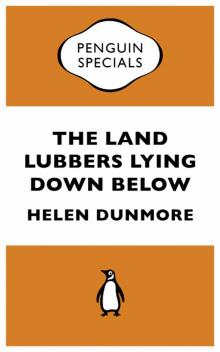 The Land Lubbers Lying Down Below (Penguin Specials)
The Land Lubbers Lying Down Below (Penguin Specials)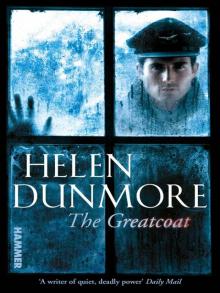 The Greatcoat
The Greatcoat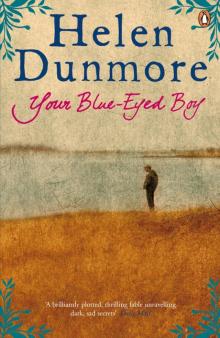 Your Blue Eyed Boy
Your Blue Eyed Boy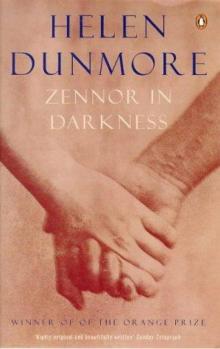 Zennor in Darkness
Zennor in Darkness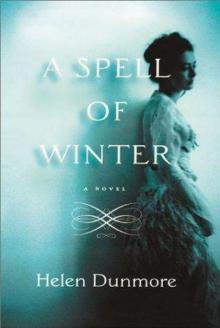 Spell of Winter
Spell of Winter Out of the Blue: Poems 1975-2001
Out of the Blue: Poems 1975-2001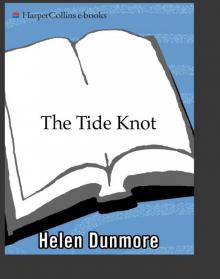 Tide Knot
Tide Knot The Betrayal
The Betrayal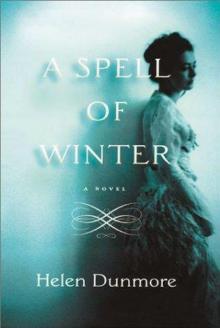 A Spell of Winter
A Spell of Winter Out of the Blue
Out of the Blue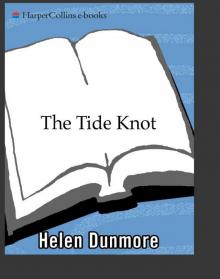 The Tide Knot
The Tide Knot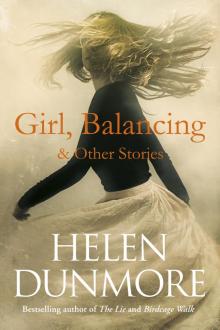 Girl, Balancing & Other Stories
Girl, Balancing & Other Stories Betrayal
Betrayal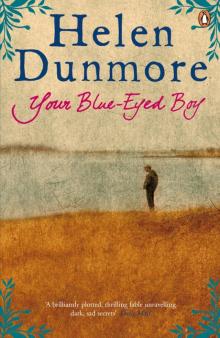 Your Blue-Eyed Boy
Your Blue-Eyed Boy